Table of Contents Show
If you drive a vehicle with a hitch, you may wonder about hitch ball grease. Taking proper care of your machinery and accessories helps you get the most out of every gadget. And greasing your trailer ball hitch extends the connector’s life.
You’ve likely heard about it, but what’s all the hype about? Do you really need to grease it? Let’s dig into this brief explanation on the topic.
Does Your Trailer Hitch Ball Need to Be Greased?
You don’t “have” to grease your hitch ball before use to make it work right. However, it is recommended for proper maintenance and care.
You should plan for a trailer hitch care day at least twice a year to be sure your hitch ball lasts as long as possible.
Adding grease to the ball on your hitch helps to maintain its integrity. Learn the proper application and cleaning process. Then you don’t have to spend money buying new fittings prematurely.
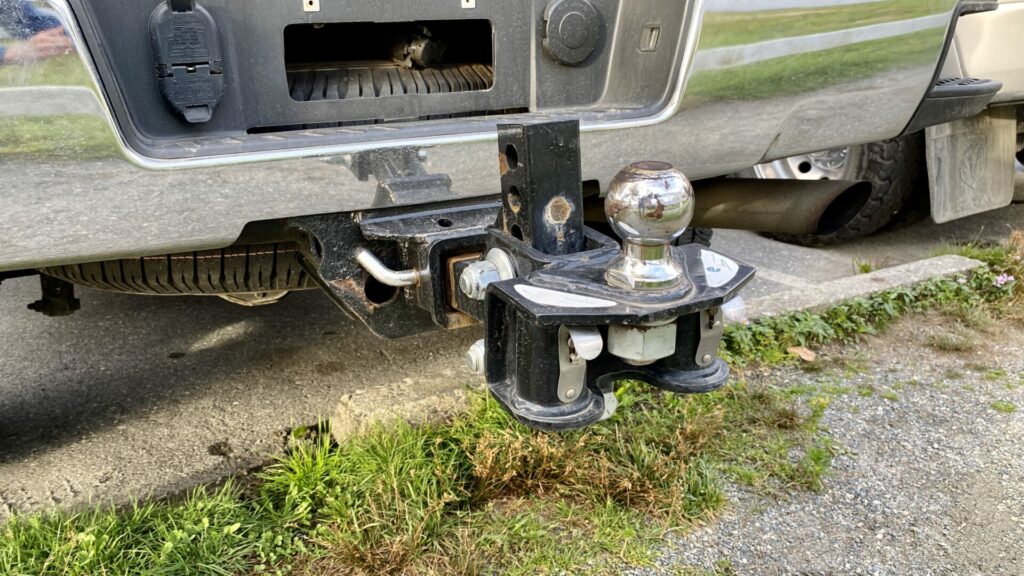
The Benefits of Using Hitch Ball Grease
Let’s explore the various benefits of using hitch ball grease. First, you’ll enjoy a quieter operation when you take the time to grease your ball before using it.
The lubricant serves as a barrier between the coating on the ball hitch and the coupler that will fit over it. This means you’ll have less wear and tear on your hitch each time you tow something.
Additionally, grease will give it more protection against rust buildup over time. With less chance of debris and rust building up, you won’t have to battle against a squeaky connection.
- Extend Hitch Ball And Coupler Life -- Protect hitch-balls and receivers from corrosion with this high-film strength and...
The Disadvantages of Using Hitch Ball Grease
It sounds like there’s a pretty straightforward case for the application of hitch ball grease. But you can’t get the full picture without considering the pros and cons.
The most common complaint is that the grease collects dirt and other debris that will scratch the coating of the metal ball.
However, you can avoid this problem by using a dry graphite lube instead of a more traditional grease.
Furthermore, you shouldn’t store the hitch with grease on it, as it’ll build up and cause a mess over time.
Cleaning the ball completely after towing maintains the integrity of your setup.
Keep in Mind: Not sure what size trailer ball you need? Read Different Ball Hitch Sizes and When to Use Them to learn more.
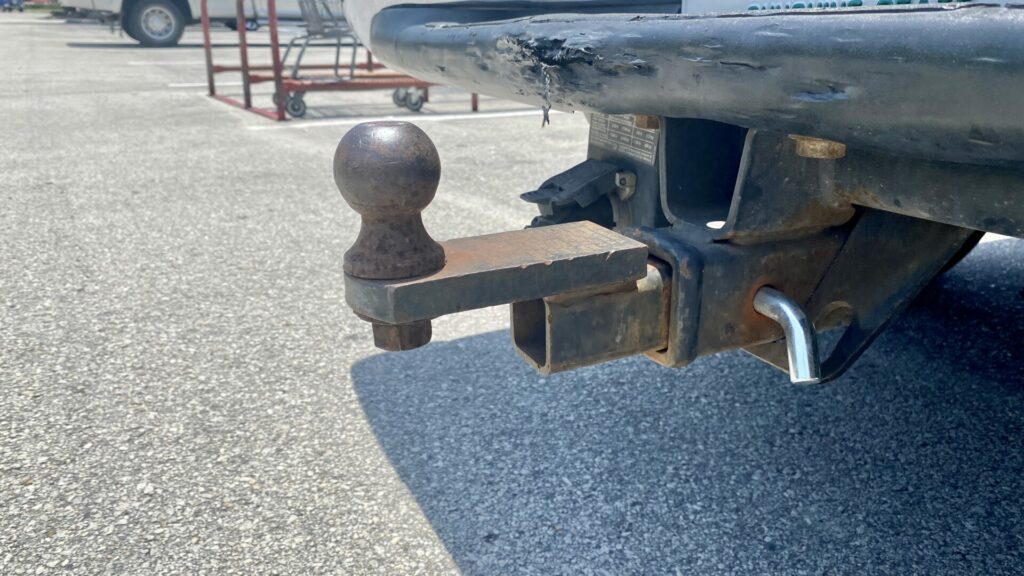
Is There an Alternative to Grease for Your Trailer Hitch Ball?
If you don’t want to use grease on your trailer hitch ball, you have some alternative options.
For instance, you could use solid candle wax to coat the hitch ball. The application makes a bit of a mess, but cleaning it off when finished is a cinch.
Dry graphite lube is a reliable option for building a protective barrier. The graphite lube is effective at slothing off all the random debris that will stick to and collect on traditional grease barriers.
- 4.5 grams powdered graphite lubricant.
- Needle nose tube make small applications Easy.
You may also consider using motor oil. It’s easier to clean up but not as effective. The viscosity of motor oil thins out when it heats up. A hot day and an arduous trail could thin the oil so much that it could fail to protect from scratching and grinding.
Grease is simply more durable than the alternatives, so learning to manage the cleanup is likely your best option.
How Often Should You Grease Your Trailer Hitch Ball?
How often you grease your hitch ball depends on the use it gets. At the very least, you should grease it every spring and fall.
However, you can do so more often if it suits you.
You should also take the time to thoroughly clean your hitch before adding any new lubricant to the mix. You don’t want to stack it, as the buildup will cause a messy problem.
Check the grease on it every time you hook up to a trailer to ensure the proper protection.
Pro Tip: You can add greasing your trailer hitch ball to your annual or bi-annual maintenance list. Speaking of maintenance, here are 5 Annual RV Maintenance Tasks Every RVer Can Do!
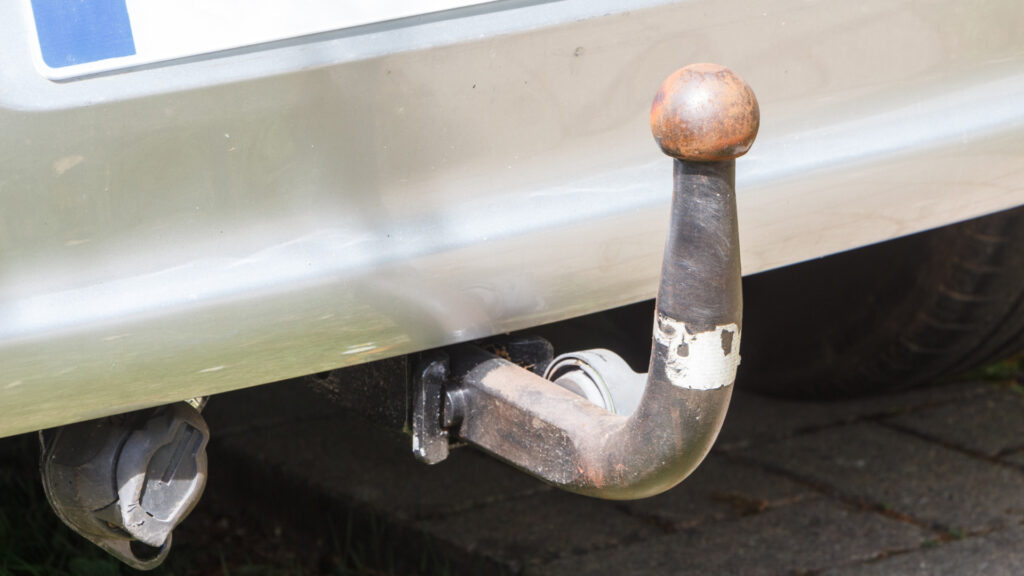
How to Grease Your Trailer Hitch Ball?
Greasing your trailer hitch is self-explanatory. First, you need the proper grease on hand. Any type will work, but you should use dry graphite lube to avoid the possibility of dirt or grime sticking to it.
Then apply the lubricant generously to the ball, and voila!
If you find that your ball hitch has accumulated a little rust along the way, don’t worry. You can take a balled-up piece of aluminum foil, dip it in distilled white vinegar, and use it to scrub away the rust.
Wash it off, give it time to dry, then start greasing your hitch ball.
- This pack includes one 12 inch wide, 50 square foot roll of heavy duty Reynolds Wrap Aluminum Foil
- #1 BRAND OF ALUMINUM FOIL—Backed by over 70 years of quality & strength, Reynolds Foil is the go-to foil for home &...
- LUCY’S NATURAL COMPOSITION - Lucy’s White Vinegar's reputation as a trusted product stems from its safety,...
- SPICING UP DIPPING SAUCES - Lucy’s White Vinegar can add a tangy kick to dipping sauces. Its acidity helps balance...
Don’t Be That Guy With a Squeaky Trailer Hitch Ball
Now that you have a better idea of what it means to grease your hitch ball, you can probably decide for yourself whether or not you should do this maintenance task.
It’s not required to tow a trailer properly, but a nice lubed-up hitch ball will allow the trailer to move without any extra friction at the connection point.
It doesn’t take much effort or money to get it done, so why not? Have you greased your trailer hitch?
Last update on 2025-01-19 / Affiliate links / Images from Amazon Product Advertising API




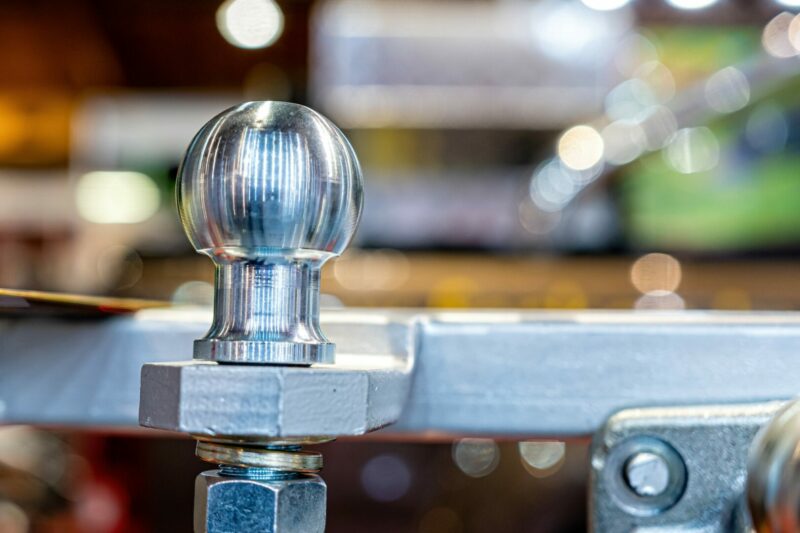
![[1 Pack] 4oz Trailer Hitch Ball Lubricant - Grease to Reduce Friction and Wear on Tow Hitch Mount Balls, King Pins, etc. - Waterproof Lube Made in The USA](https://m.media-amazon.com/images/I/41Qz6hcAqLL.jpg)


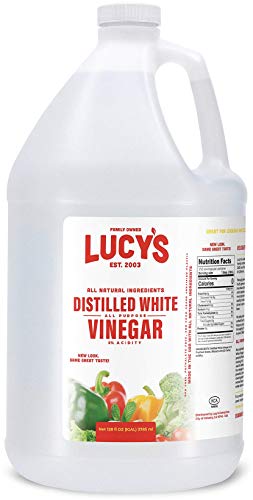


One big thing to note: if you leave a ball mount in the receiver for an extended time, it WILL become stuck. Not to mention, some areas will try to to ticket you, because it’s a ‘shin Buster’s.
We always grease the ball we used to put a plastic bag over it when storing it but have recently purchased a rubber hitch ball cover now we put the cover in the plastic bas we’re living it